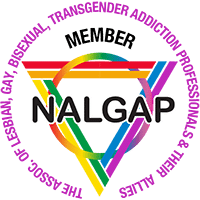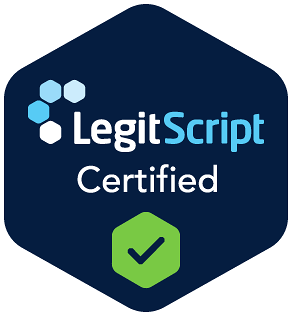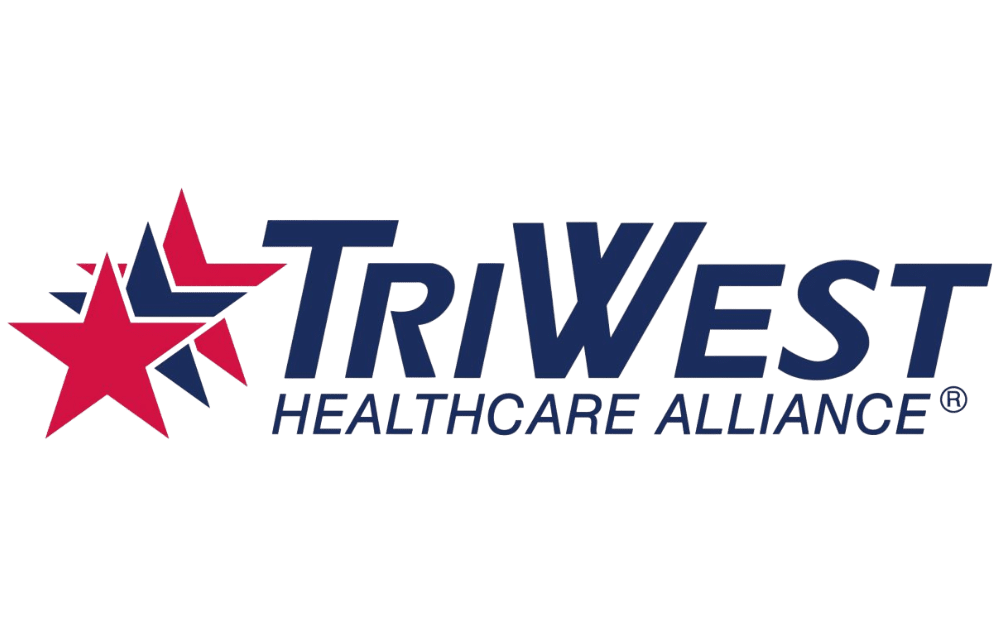Drug and alcohol rehab
The Evolution of Substance Use Treatment
Substance use treatment has evolved significantly over the decades. Initially, interventions focused heavily on punitive measures and moral judgments. However, as scientific understanding of addiction has advanced, the approach to treatment has become more compassionate and evidence-based.
Modern drug and alcohol rehab centers now understand that addiction is a complex disease that affects both the brain and behavior. This shift has led to the development of comprehensive treatment programs that address the multifaceted nature of addiction, combining medical, psychological, and social support.
The Role of Evidence-Based Therapies
In the realm of drug and alcohol rehab, evidence-based therapies play a critical role. These therapies are grounded in scientific research and have been proven effective through rigorous testing. They include Cognitive Behavioral Therapy (CBT), Dialectical Behavior Therapy (DBT), and Eye Movement Desensitization and Reprocessing (EMDR).
CBT helps patients recognize and alter negative thought patterns and behaviors related to substance use. DBT combines cognitive-behavioral techniques with concepts of mindfulness and acceptance, making it particularly useful for individuals with co-occurring disorders. EMDR is often used to treat trauma, which is a common underlying factor in substance use disorders.
By integrating these therapies, Mile High Recovery Center provides a robust framework for recovery, addressing both the symptoms and root causes of addiction.
The Impact of Holistic Treatments
Holistic treatments have become an integral part of the drug and alcohol rehab landscape. These treatments aim to heal the person as a whole, encompassing the body, mind, and spirit. Mile High Recovery Center incorporates various holistic approaches, including adventure therapy, equine-assisted therapy, art and music activities, and nutrition education.
Adventure therapy offers participants the opportunity to engage in physical activities that promote personal growth and self-discovery. Equine-assisted therapy allows individuals to form therapeutic alliances with horses, which can enhance emotional awareness and interpersonal skills. Art and music activities foster creative expression and can be powerful tools for processing emotions.
Nutritional education is also vital, as substance use can significantly impact physical health. By teaching patients about proper nutrition, recovery centers help individuals rebuild a healthy relationship with their bodies.
Medication-Assisted Treatment Explained
Medication-Assisted Treatment (MAT) is a cornerstone in the management of opioid and alcohol addiction. MAT involves the use of FDA-approved medications, such as Suboxone and Vivitrol, to help manage withdrawal symptoms and cravings. At Mile High Recovery Center, MAT is combined with counseling and behavioral therapies for a comprehensive approach.
The goal of MAT is not to substitute one drug for another but to stabilize patients so they can engage more effectively in other treatment modalities. This approach has been shown to reduce the risk of relapse and improve overall treatment outcomes.
The Benefits of Personalized Care
Personalized care is at the heart of effective drug and alcohol rehab. Each individual’s journey to recovery is unique, requiring customized treatment plans that cater to specific needs and circumstances. Mile High Recovery Center embraces a multi-phase, personalized treatment model that includes medical management, group work, and hands-on therapeutic experiences.
This personalized approach begins with a thorough assessment to identify the specific needs of the patient. From there, a tailored plan is developed that incorporates various therapeutic options, ensuring a holistic and comprehensive treatment experience.
The Importance of Supportive Housing
Supportive housing plays a crucial role in the rehabilitation of individuals recovering from substance use disorders. Providing a stable and safe environment is essential for maintaining sobriety and facilitating a successful transition back into everyday life. Mile High Recovery Center’s integrated housing-to-treatment pipeline is an innovative approach that ensures continuity of care.
This model offers individuals the chance to live in sober living homes while accessing intensive outpatient programs and other support services. The supportive housing environment fosters a sense of community and shared experience, which can be pivotal in the recovery process.
Adolescent and Family-Focused Approaches
Adolescents and families are a significant focus in the realm of drug and alcohol rehab. Young individuals face unique challenges and require tailored interventions that address their developmental needs. Mile High Recovery Center offers specialized programs that cater to adolescents, incorporating age-appropriate therapies and activities.
Family therapy is another essential component, as substance use disorders often impact the entire family system. Engaging family members in the treatment process can enhance understanding, improve communication, and provide a solid support network for the recovering individual.
Serving Diverse Populations
Drug and alcohol rehab centers must be equipped to serve diverse populations, including the LGBTQ community and military beneficiaries. Mile High Recovery Center provides culturally competent care that respects and acknowledges the unique experiences of these groups.
The center also works with various insurance providers to ensure that financial barriers do not impede access to treatment. By verifying insurance coverage and accepting in-network reimbursement, they make it easier for individuals to receive the help they need.
These efforts reflect a commitment to inclusivity and accessibility, ensuring that all members of the community have the opportunity to recover and thrive.
The Role of Alumni Communities
Alumni communities offer a vital lifeline for individuals in recovery. They provide ongoing support and a sense of belonging, which are crucial for maintaining long-term sobriety. Mile High Recovery Center’s active alumni community is a testament to the power of peer support.
Alumni events, support groups, and mentorship opportunities create a network of individuals who understand the challenges of recovery firsthand. This supportive environment encourages accountability and helps individuals stay connected to their recovery goals.
Through shared experiences and mutual support, alumni communities play a significant role in preventing relapse and promoting sustained recovery.
Navigating Co-Occurring Disorders
Many individuals seeking drug and alcohol rehab struggle with co-occurring mental health disorders, such as anxiety, PTSD, or bipolar disorder. Addressing these conditions in conjunction with substance use disorders is critical for successful treatment outcomes.
Mile High Recovery Center provides dual-diagnosis services that integrate mental health care into traditional addiction treatment. This approach ensures that patients receive comprehensive care that addresses both their mental health and substance use needs.
By adopting an integrated treatment model, Mile High helps patients achieve greater stability and improved quality of life.
What are the key components of evidence-based therapies in addiction treatment?
Evidence-based therapies are fundamental in addressing addiction. These therapeutic approaches are backed by solid scientific research and have been shown to effectively reduce substance use and improve mental health. For instance, Cognitive Behavioral Therapy (CBT) helps individuals identify and change negative thinking patterns and behaviors. Dialectical Behavior Therapy (DBT) emphasizes therapy skills such as mindfulness and emotional regulation, making it particularly effective for those with co-occurring disorders. Eye Movement Desensitization and Reprocessing (EMDR) addresses trauma, a common underlying factor in substance use disorders. By using these evidence-based practices, treatment centers can provide a comprehensive framework that addresses both the symptoms and root causes of addiction.
How do holistic treatments enhance the recovery process?
Holistic treatments play a pivotal role in the recovery process by considering the whole person–body, mind, and spirit. At Mile High, various holistic approaches such as adventure therapy, equine-assisted therapy, and art and music activities provide therapeutic benefits that support emotional and psychological healing. Adventure therapy encourages personal growth through physical activities, while equine-assisted therapy enhances emotional awareness and interpersonal skills. Moreover, integrating nutrition education helps patients rebuild a healthy relationship with their bodies, counteracting the physical toll that substance use can take. By incorporating these diverse therapies, holistic treatments can facilitate deeper healing and a more robust recovery.
What is the role of Medication-Assisted Treatment in rehabilitation centers?
Medication-Assisted Treatment (MAT) is a crucial element in managing opioid and alcohol addiction. By using FDA-approved medications like Suboxone and Vivitrol, MAT helps manage withdrawal symptoms and cravings, allowing individuals to focus on recovery. The goal is not to replace one addiction with another but to stabilize patients so they can engage in counseling and behavioral therapies. Studies have demonstrated that when combined with therapy, MAT significantly reduces the risk of relapse and improves treatment outcomes. At Mile High, MAT is integrated into a comprehensive care plan tailored to each patient’s unique needs, contributing to more sustainable recovery.
Why is personalized care essential in addiction treatment?
Personalized care is vital because each individual’s journey to recovery is unique. A one-size-fits-all approach often falls short. At Mile High, personalized care begins with a thorough assessment to determine the patient’s specific needs. Treatment plans are then tailored to include a combination of therapies and support services that best fit the individual’s circumstances. This multi-phase approach ensures that all aspects of a patient’s condition–physical, mental, and emotional–are addressed. Personalized care not only enhances the effectiveness of treatment but also empowers patients to take an active role in their recovery journey.
How do supportive housing programs contribute to sustained recovery?
Supportive housing programs are instrumental in maintaining sobriety post-treatment. A stable, sober living environment offers individuals a safe space to transition back into everyday life while still having access to support services. At Mile High, the integrated housing-to-treatment pipeline provides continuity of care, essential for long-term recovery. Living in a community with shared experiences fosters a sense of belonging and accountability, which can be incredibly powerful in preventing relapse. By offering structured support and community engagement, supportive housing programs pave the way for a successful and sustainable recovery.
What steps are taken to serve diverse populations in rehabilitation programs?
Rehabilitation centers must be equipped to address the unique needs of diverse populations. At Mile High, culturally competent care is a priority, ensuring that treatment respects and acknowledges the experiences of different groups, such as the LGBTQ community and military beneficiaries. Collaborations with various insurance providers help eliminate financial barriers to access. By verifying insurance coverage and offering in-network reimbursement options, Mile High ensures that all individuals, regardless of their background, receive the care they need. Serving diverse populations is not just about inclusivity but ensuring equitable access and personalized treatment for everyone.
How do alumni communities support long-term recovery?
Alumni communities are crucial in supporting long-term recovery. They provide ongoing peer support and a sense of belonging, which are vital for maintaining sobriety. Mile High’s active alumni network organizes events, support groups, and mentorship opportunities that keep individuals engaged and accountable. By forming connections with others who have similar experiences, alumni can offer and receive guidance, share challenges, and celebrate milestones. This communal support not only aids in preventing relapse but also encourages continued personal growth and a commitment to a sober lifestyle.
How are co-occurring disorders addressed in addiction treatment?
Addressing co-occurring disorders in addiction treatment is critical for effective outcomes. Many individuals with substance use disorders also struggle with mental health issues, such as anxiety or PTSD. At Mile High, an integrated treatment model is employed, wherein both mental health and substance use disorders are addressed simultaneously. This dual-diagnosis approach ensures that patients receive comprehensive care tailored to their complex needs. By treating both the addiction and mental health conditions, patients can achieve better overall stability and improved quality of life. This holistic approach exemplifies the importance of viewing addiction recovery as a multifaceted journey.
Resources
- Substance Abuse and Mental Health Services Administration (SAMHSA) – SAMHSA is a government agency that leads public health efforts to advance the behavioral health of the nation. They provide resources, programs, and information on substance abuse treatment and mental health services.
- National Institute on Drug Abuse (NIDA) – NIDA is a research-focused institute within the U.S. National Institutes of Health. They conduct and support research on drug use and addiction, providing valuable information on effective prevention and treatment strategies.
- American Psychiatric Association (APA) – The APA is a professional organization representing psychiatrists in the United States. They offer resources on mental health disorders, including substance use disorders, and promote high-quality care for individuals with these conditions.
- National Alliance on Mental Illness (NAMI) – NAMI is a grassroots mental health organization that provides advocacy, education, and support for individuals and families affected by mental illness. They offer resources on co-occurring disorders and treatment options.
- U.S. Department of Veterans Affairs – The VA offers a range of services for veterans, including substance use disorder treatment. They provide information on specialized programs for military beneficiaries and resources for addressing co-occurring disorders.
















